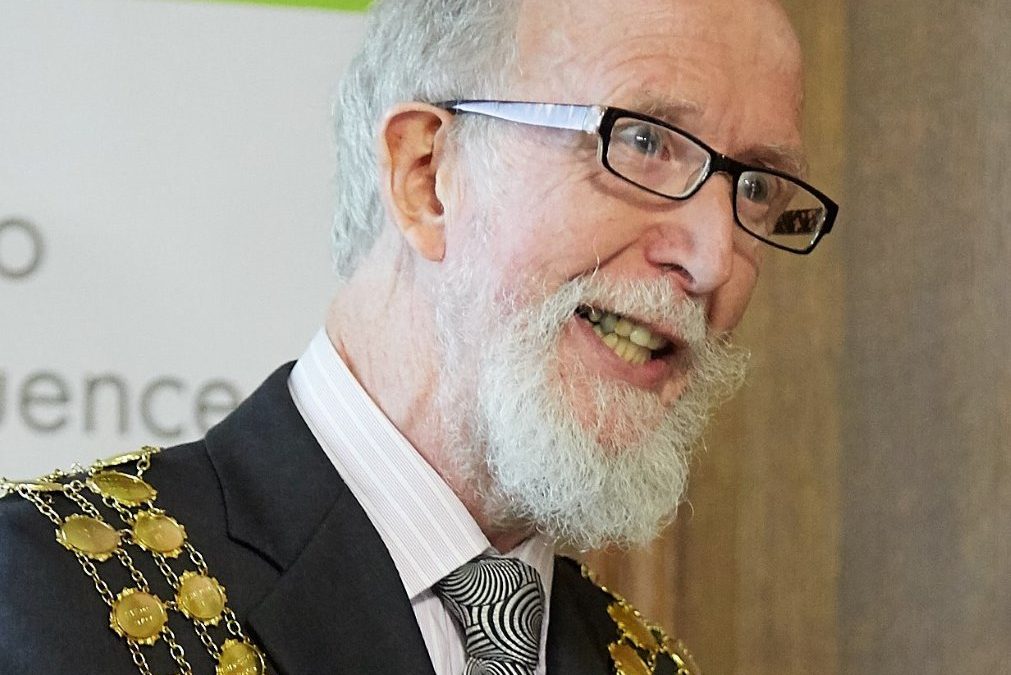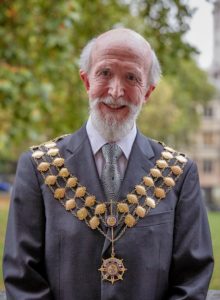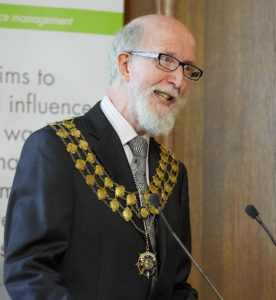16 September, 2021 | Publication, Resource and waste management
Professor David C Wilson is pleased to co-author an important new publication The Nine Development Bands: A conceptual framework and global theory of waste and development. The open access paper in ISWA’s peer-reviewed journal Waste Management & Research can be downloaded freely. The ‘9 DBs’ builds on the integrated sustainable waste management (ISWM) analytical framework to help characterise waste and resources management (WaRM) systems in cities and countries. Based on over 100 years of combined experience of the authors (Andrew Whiteman, Mike Webster and DCW), the 9DBs is a powerful addition to the waste management practitioner’s toolkit, bringing depth and nuance to understanding of WaRM systems globally.
The early DBs reflect stepwise improvement towards the new
baseline of meeting the SDG 11.6.1 indicators of universal collection and
management in controlled facilities (DB5); while later DBs represent two
prevailing routes to move towards environmentally sound management (ESM) and
the 3Rs (Reduce, Reuse, Recycle). An aspirational DB Zero, a real circular
economy, sits above all 9 DBs, accessible via multiple pathways, posing an
ultimate challenge for development practice. The 9DBs contextualise the
challenge of meeting the waste-related SDGs, in particular for developing
countries striving towards SDG 11.6.1 but also for all countries aspiring to a
circular economy. Whether you are a practitioner, decision-maker, service
provider, or sector activist, the 9DBs will help you to identify the key
pressure points for catalysing change, and focus your time and resources on
achieving maximum impact.
29 January, 2021 | Publication, Resource and waste management
Professor David C. Wilson has contributed a chapter on the SDGs as drivers for change to The Routledge Handbook of Waste, Resources and the Circular Economy, edited by Terry Tudor and Cleber Dutra and published on 28 December 2020. This has been a subject on which DCW has worked extensively, as re-casting improved waste and resource management as an entry point for tackling multiple, high-profile sustainable development goals significantly strengthens the case for action.
Solid waste management is not one of the high-level SDGs; like the equally important topic of air pollution, it is rather cross-cutting, impacting on multiple SDGs. DCW links five global waste targets, as defined in UNEP and ISWA’s inaugural Global Waste Management Outlook, to the 17 SDGs. He shows strong and in principle measurable links to six SDGs, not only the ‘obvious’ SDG11 (sustainable cities) & indicator 11.6.1, and SDG12 (responsible consumption and production); but also SDG1 (end poverty), SDG 6 (clean water and sanitation); and SDG13 climate action and SDG14 life below water (preventing plastics reaching the oceans). Links to six other high priority SDGs are still direct but more difficult to measure (e.g. SDG8 decent work through sustainable job creation, and SDG2 zero hunger through reducing food waste). Indirect links can also be made to the remaining five SDGs, including difficult-to-tackle equality and governance issues.
The Handbook sits behind a paywall, with only the abstract of the chapter online. The accepted manuscript of the chapter can be downloaded here:

18 October, 2017 | Awards, Resource and waste management

Professor David C Wilson following his inauguration in Westminster as 2017-18 CIWM President

Professor David C Wilson giving his inauguration speech as CIWM President 2017-18
https://samtech.edu/accutane-treating/
Professor David C. Wilson has been inaugurated as the 102nd President of CIWM, the UK and Irish professional body for resources and waste, at a reception in London. He described solid waste management as one of the key utilities and said that as public sector budgets continue to come under pressure, “we must not lose sight of where we have come from, that the service exists first and foremost to protect public health”. He highlighted the ‘global waste management emergency’, where 40% of the World’s population lacks this basic utility service. He also launched his Presidential report, Making Waste Work: A Toolkit, prepared by WasteAid UK and aimed at helping unserved communities in the least developed countries to help themselves, by developing self-sustaining businesses making useful products for the local market from the resource value in their waste.
Outlining the importance of legislation in the substantial progress that has been made in the sustainable and safe management of waste since the early 1970s, Professor Wilson added that there can be no softening of the regulatory framework. “Two major priorities for CIWM in the UK are to ensure that following Brexit we have continuity of the strong regulations on which the very existence of the waste and resources industry depends, and the continuing fight against waste crime.”
While continuity is important on one hand, DCW went on to talk about the step change in approach to resources and waste that is happening, and he called for a “necessary parallel focus on the 3Rs – reduce, reuse, recycle – and on the shift from the linear model to a circular economy where resource efficiency and productivity is key”. An integrated and inclusive approach will be needed, he said, as well as a balanced set of policy drivers.
Professor Wilson highlighted that, despite the progress that has been made, more than 2 billion people have no waste collection at all and the waste of over 3 billion people is either dumped or subject to uncontrolled burning. This matters: for example, children growing up in households without waste collection have double the rate of diarrhoea and six times the rate of acute respiratory infection; and open burning of waste could double the current, official IPCC estimates of the contribution of methane emissions form landfill of waste to global warming. However, he also sees this ‘global waste management emergency’ as an opportunity for the international community. “If we can increase the proportion of existing international development finance being directed at SWM from the current, fairly derisory, 0.3% to just 3% up to 2030, as recommended in the GWMO, then not only can we extend waste collection to all and eliminate open dumping and burning of waste, but due to the cross-cutting nature of waste management, we can also make progress against no fewer than 12 out of the 17 UN Sustainable Development Goals agreed by world leaders to achieve a sustainable future for our planet.”
Press coverage:
Resource: Community waste schemes, the global waste crisis, domestic issues, DCW’s life in waste.
Waste Management World: Waste as a utility, domestic issues, the global waste emergency.
Letsrecycle.com: Global waste emergency, community waste toolkit
Recycling Waste World: Community waste toolkit
CIWM-journal: Waste as a utility, domestic issues, the global waste emergency, community waste toolkit
Interview with DCW in CIWM Journal:


